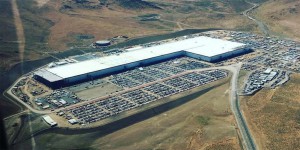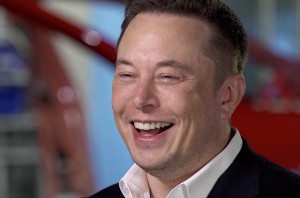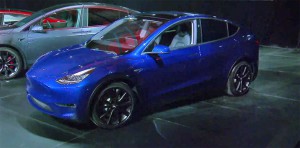After long dismissing the need to raise additional capital, Tesla has not only gone back to investors with its hands out but been rewarded with about 25% more fresh funding than it had said it would seek just a matter of days ago.
In all, the financially stretched EV automaker will be able to add at least $2.35 billion to its cash horde, and the figure could grow to around $2.7 billion should underwriters exercise their right to purchase even more stock and bonds.
The news translated into a solid bounce for Tesla stock, as of mid-afternoon Friday, giving some positive momentum after months of decline. But with shares hovering under $245, the Silicon Valley-based company is still well off from its $319.88 high this year, never mind a 52-week peak of $387.46.
In all, Tesla wound up raising $1.6 billion in the form of convertible bonds, about $250 million more than it original aimed for. Separately, it generated about $750 million from the sale of 3.1 million shares of common stock priced at $243 a share – about $100 million more than it targeted.
That’s a sign of confidence Tesla and CEO Elon Musk clearly must be pleased with considering the poor reception the company got from analysts and investors little more than a week ago, the stock tumbling after Musk and company reported a worse loss than Wall Street had anticipated for the first quarter of the year.
(Tesla boosting Model 3 ranges, performance. Click Here for the story.)
The carmaker went $522 million into the red on sales of $3.7 billion, well below the consensus forecast. Equally worrisome, many analysts said, was the fact that the company ended the quarter with just $2.2 billion in cash and cash equivalents, a $1.5 billion decline from the end of 2018. In the subsequent days, Tesla shares fell to a two-year low, despite company officials insisting that they would push back into profitability by the second half of this year.
(For more on Tesla’s big loss, Click Here.)
The cash crunch was exacerbated by a $900 million bond payment during Q1, but Tesla has plenty of other leaks in its bank account. If nothing else, it is in the midst of funding the development of an array of new products, starting with the recently unveiled Model Y, a compact crossover that Musk is betting will double the sales of the Model 3 sedan. There’s also a second-generation Roadster, a pickup truck and an all-electric Semi.
Meanwhile, Tesla is funding the construction of a new assembly plant in Shanghai, never mind the ongoing expansion of its Gigafactory battery plant in Reno, Nevada. And Musk and his team are still hammering out plans to actually build the Model Y, with the debate centering around whether to stick with the plant building the Models S, X and 3 in Fremont, California, or put a line in at the Gigafactory. Either way, that will be another significant drain on cash before it’s completed.

Tesla is still deciding whether to build the Model Y in California or at this Gigafactory in Reno, NV.
Ironically, the Wall Street Journal reports that some of fresh cash Tesla has raised may have come from the short-sellers that CEO openly disdains. Reasonable borrowing costs, the publication suggested, may have made it more cost-effective for the “shorts” to buy in and then bet against Tesla stock.
Whatever the reason why investors signed on, the cash infusion “does alleviate near-term balance sheet and liquidity concerns,” said Garrett Nelson, senior equity analyst at CFRA Research.
(For more on Tesla’s original plan for its capital-raising efforts, Click Here.)
Among those who bought in on Tesla’s latest offering was CEO Musk. He wound up buying $25 million in new shares, up from the $10 million he originally expected to spend.
The 47-year-old executive might have been feeling buoyant even before the latest capital sale went off.
Earlier this week, Musk reached a settlement with the U.S. Securities and Exchange Commission over allegations that he improperly tweeted out material information on the company’s plans. Musk last autumn reached a prior settlement with the SEC over his tweets claiming he was ready to take Tesla private. He was expected to run anything potential impacting company stock by Tesla lawyers before publishing the information – something the feds said he didn’t do when announcing production plans in February.
The agency could have removed Musk as CEO if it prevailed in court. It wound up just firming up the guidelines for what the chief executive can and can’t tweet. The question is whether he’ll now abide by those rules, Musk so far showing little interest in toning down his frequent tweeting and blogging.


